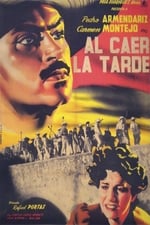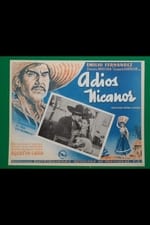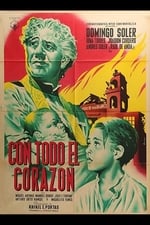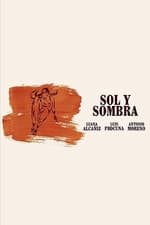Personal Info
Known For Directing
Known Credits 17
Gender Male
Birthday December 1, 1897
Day of Death May 11, 1975 (77 years old)
Place of Birth Orizaba, Veracruz, Mexico
Also Known As
- -
Content Score
100
Yes! Looking good!
Login to report an issue
Biography
Rafael Eligio Portas López (12/1/1897 – 5/11/1975), better known simply as Rafael E. Portas, was a Mexican director, producer, journalist, author, and editor of the first encyclopedia of Mexican cinema. He completed all his studies at Colegio Mascarones in Mexico. In 1915, he enrolled in the first year of Law at the Faculty of Jurisprudence in Mexico City, a program he later abandoned to join the armed forces defending the Port of Veracruz. Some time later, he left that military group to join the Villista army, where he remained until 1917. After ending his military career, and captivated by cinema and acting, in 1918 he organized amateur theater groups in which he not only served as coordinator but also performed as an actor.
He left the theater and, from 1927 to 1930, worked in various roles within the national banking sector until becoming an investor. He later turned to journalism. He was the founder and editor of the magazine Orizaba. He returned to Mexico City and contributed to the newspaper Excélsior. Starting in 1931, he had the opportunity to enter the film industry as a producer of the films El anónimo (1932) and El prisionero trece (1933), both directed by Fernando de Fuentes, as well as El héroe de Nacozari / Jesús García el héroe de Nacozari (Guillermo “El Indio” Calles, 1933), among others.
Rafael Eligio Portas López (12/1/1897 – 5/11/1975), better known simply as Rafael E. Portas, was a Mexican director, producer, journalist, author, and editor of the first encyclopedia of Mexican cinema. He completed all his studies at Colegio Mascarones in Mexico. In 1915, he enrolled in the first year of Law at the Faculty of Jurisprudence in Mexico City, a program he later abandoned to join the armed forces defending the Port of Veracruz. Some time later, he left that military group to join the Villista army, where he remained until 1917. After ending his military career, and captivated by cinema and acting, in 1918 he organized amateur theater groups in which he not only served as coordinator but also performed as an actor.
He left the theater and, from 1927 to 1930, worked in various roles within the national banking sector until becoming an investor. He later turned to journalism. He was the founder and editor of the magazine Orizaba. He returned to Mexico City and contributed to the newspaper Excélsior. Starting in 1931, he had the opportunity to enter the film industry as a producer of the films El anónimo (1932) and El prisionero trece (1933), both directed by Fernando de Fuentes, as well as El héroe de Nacozari / Jesús García el héroe de Nacozari (Guillermo “El Indio” Calles, 1933), among others.
Directing
|
||||||
|
||||||
|
||||||
|
||||||
|
||||||
|
||||||
|
||||||
|
||||||
|
||||||
|
||||||
|
Writing
|
|||
|
|||
|






